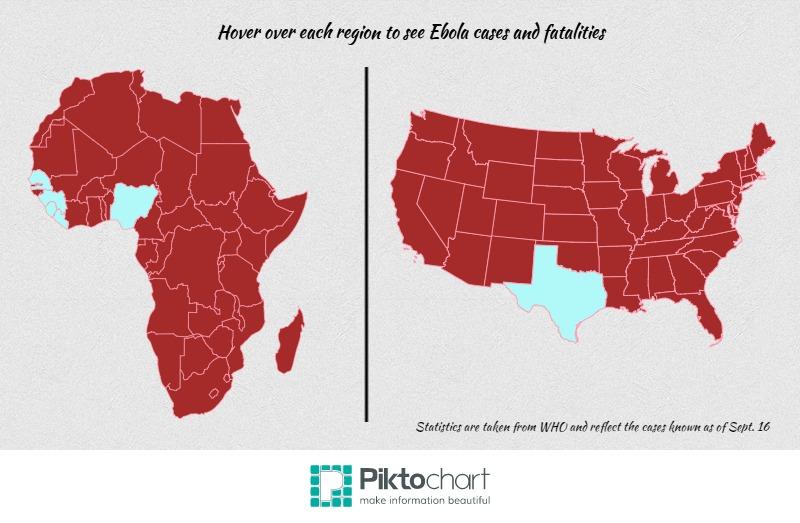So, what exactly is Ebola?
Ebola is a viral disease that currently has no real cure or vaccine, though scientists are in the process of developing a vaccine. The virus has a 50 percent fatality rate, with early symptoms as innocent as fever, muscle pain and headaches. Eventually these symptoms worsen, with patients vomiting, developing rashes and eventually deteriorating to lower kidney and liver failure. Since there is currently no cure, Ebola patients are treated for these symptoms rather than the virus itself.
How is Ebola transmitted?
Ebola can only be transmitted through direct contact with bodily fluids and has an incubation period between two to 21 days. Hosts remain infectious as long as their fluids contain the virus, so burial practices in which uninfected families touch the infected body of a victim, have become a major factor in the continuing spread of the virus. Additionally, health care workers that do not use the proper precautions when treating patients run a high risk of contracting the disease.
What’s going on with the Ebola epidemic?
The current West African Ebola epidemic began in March and has become the largest on record with total cases and fatalities outnumbering all previous Ebola outbreaks combined. Since Ebola was first discovered 38 years ago, the virus has mainly surfaced in isolated Central African villages, not spreading to urban areas.
The epidemic began in Guinea and spread to Sierra Leone and Liberia, all countries with weak health systems which lack the infrastructure necessary to combat an outbreak on this scale. The disease has further affected Senegal and Nigeria, though both countries were able to contain the cases with minimal fatalities.
Wait, that’s in Africa. What about the U.S.?
As of Oct. 22, there have been three documented cases of Ebola in the U.S. Thomas Eric Duncan, a Liberian citizen, arrived in Texas to meet his fiancée and son after 20 years of separation. Duncan was unaware that he had contracted Ebola before he made the trip, and after a series of mistakes by the hospital he was admitted to, he passed away. Two nurses who had been assisting with his case have since contracted the disease, though the condition of the first, Nina Pham, has been upgraded from “fair” to “good.”
Forty-eight people who had been in contact with Duncan before his admission to the hospital have been in quarantine for the past 21 days, the duration of the incubation period. Forty-five have been released, with the others expected to follow shortly.
Am I going to catch Ebola?
First, answer these questions:
- Are you planning on making a trip to Sierra Leone, Guinea or Liberia?
- How about Texas?
- Have you recently come in contact with anybody who has been diagnosed with Ebola?
- If you have, did you by chance happen to come in contact with their bodily fluids? Remember that’s saliva, semen, vomit, blood, feces or urine.
If you answered no to these questions, then congratulations! There is a 0 percent chance of you contracting Ebola. Unfortunately, this isn’t true for thousands of people in West Africa who are in danger. According to the World Health Organization if the outbreak has not stopped by December, 10,000 people are at risk of getting Ebola each week in the areas affected.
Is there anything I can do?
Yes! A big reason the outbreak hasn’t been stopped is that organizations just don’t have the bandwidth to deal with the crisis. While there have been some big money donors, the average person just hasn’t been donating enough to help fight Ebola. If you are interested in donating, here’s a list of a few organizations working to help contain and cure this disease.
If you have any further questions about the Ebola epidemic, leave them in the comments below to be answered as soon as possible.








